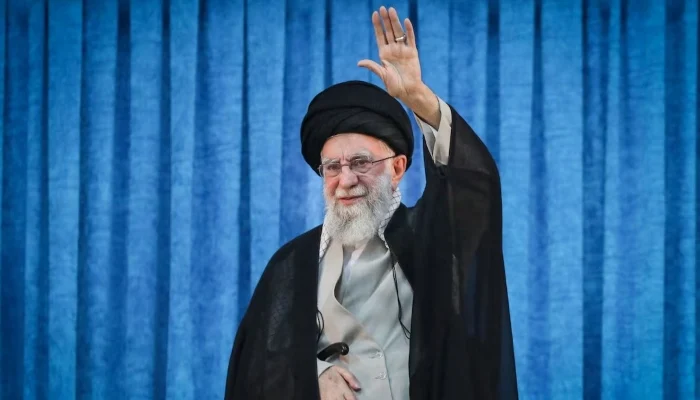Iran’s Supreme Leader Ayatollah Ali Khamenei declared on Wednesday that a US proposal for a nuclear agreement runs contrary to the national interest, highlighting sharp differences regarding Tehran’s continued uranium enrichment. The longtime adversaries have engaged in five rounds of talks since April, aiming to forge a new accord to replace the deal with major powers that US President Donald Trump abandoned during his first term in 2018.
On Saturday, Iran confirmed it had received “elements” of the US proposal through Omani mediators, though the specific details have not been publicly disclosed. “The (nuclear) proposal presented by the Americans is 100% against” the ideals of the 1979 Islamic revolution, Khamenei asserted in a televised speech. He further stated, “Independence means not waiting for the green light from America and the likes of America.”
Iran’s enrichment of uranium has emerged as a significant point of contention. Trump stated on Monday that his administration would not permit “any” enrichment, despite Tehran’s steadfast insistence that it is its right under the nuclear Non-Proliferation Treaty. Khamenei emphasized that enrichment is “key” to Iran’s nuclear program and that the United States “cannot have a say” on the issue.
“If we have 100 nuclear power plants but don’t have enrichment, they will be of no use to us,” he explained, “because nuclear power plants need fuel to operate.” He continued, “If we cannot produce this fuel domestically, we have to reach out to the United States, which may have dozens of conditions.”
‘Less Than Satisfactory’ Cooperation Cited
On Monday, Iran’s lead negotiator, Foreign Minister Abbas Araghchi, held discussions in Cairo with Rafael Grossi, head of the UN nuclear watchdog, the International Atomic Energy Agency (IAEA). In its most recent quarterly report last week, the IAEA noted that Iran had further escalated its production of highly enriched uranium.
In a separate report, the IAEA also criticized “less than satisfactory” cooperation from Tehran, particularly regarding its explanations for past instances of nuclear material found at previously undeclared sites. Iran currently enriches uranium to 60%, significantly above the 3.67% limit stipulated in the 2015 deal, yet still below the 90% threshold required for a nuclear warhead.
These reports precede a planned IAEA Board of Governors meeting in Vienna later this month, which will review Iran’s nuclear activities. Washington and other Western governments have consistently accused Iran of pursuing nuclear weapons capability. Iran maintains that its program is solely for peaceful purposes.
The 2015 deal provided Iran with relief from international sanctions in exchange for UN-monitored restrictions on its nuclear activities. Trump reimposed US sanctions upon withdrawing from the agreement in 2018 and has since tightened them, including through secondary sanctions against third parties who violate them.
Britain, France, and Germany, the three European countries party to the 2015 deal, are currently evaluating whether to activate the sanctions “snapback” mechanism within the accord. This mechanism would reinstate UN sanctions in response to Iranian non-compliance—an option that is set to expire in October. Iran has strongly criticized the IAEA report as unbalanced, alleging it relies on “forged documents” provided by its arch-foe Israel.



